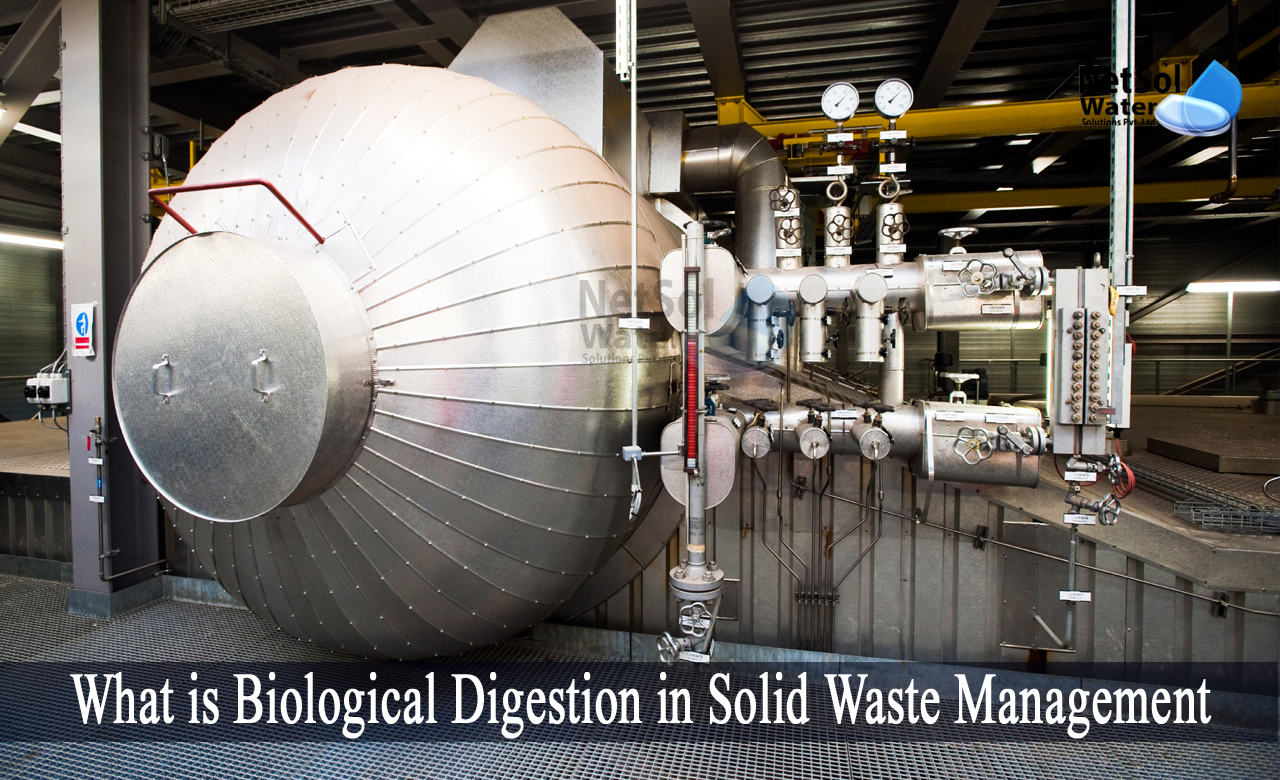What is Biological Digestion in Solid Waste Management?
Waste management is a major issue in urban, industrial, and rural regions. Solid wastes pollute the environment in a variety of ways. Even before such pollutants are properly disposed of, they pollute the air, water, and land, posing a persistent threat to human life.
As a result, one of the most pressing concerns of modern society is the cautious management of solid waste.
In this article, we will talk about the biological digestion in the management of solid waste.
Solid Waste Management techniques
A variety of procedures can be used to change the physical and chemical composition of solid wastes, in order to lessen and neutralize their toxicity. The treatments differ based on the hazardous waste's physical state and chemical composition.
Thus, solid waste treatment can be split into three categories:
· Physical
· Chemical
· Biological
Biological treatment of solid waste
As you are aware, this entails the action of microbes on waste products. Microorganisms such as bacteria and fungi are regarded as nature's scavengers, breaking down the organic substances found in waste. In other terms, it is the decomposition of the organic part of solid waste, using aerobic and anaerobic processes.
Biological treatment entails the following procedures:
1. Conditioning
The waste is exposed to the atmosphere for a set period of time.
2. Digestion
Microorganisms break down complex organic substances into simpler forms.
3. Composting
Organic matter is turned into valuable manures.
4. Waste Disposal
The final phase in solid waste management is safe waste disposal.
What is fermentation in solid waste management?
Fermentation is a controlled degradation of biodegradable materials, which takes place under anaerobic circumstances (in a closed reactor), at temperatures suited for mesophilic or thermophilic bacteria.
Waste materials comprising lipids, proteins, and carbohydrates, can be converted via the fermentation process. Organic substrates function as both electron donors and acceptors.
The main fermentation products are volatile fatty acids, like acetic, propionic, and butyric acid, as well as alcohols like ethanol and butanol.
Types of fermentation processes
Due to the moisture content of the batch, fermentation systems are classified as "wet" or "dry."
"Wet" fermentation occurs with liquid substrates, with a dry matter content of less than 15%.
“Dry” fermentation refers to the fermentation of waste, having a higher dry matter concentration. The maximum dry matter content of the substrates is 40%.
Wet systems are typically run in a continuous mode, which promotes process stability, whereas, dry solutions can function in either a continuous or periodic mode. Dry fermentation, as opposed to wet fermentation, necessitates a smaller reactor volume.
What happens if solid waste is not properly treated?
Improper hazardous waste disposal pollutes the atmosphere and the surrounding ecosystem. The release of harmful compounds into bodies of water frequently kills aquatic life. Uncontrolled waste dumping on land has the potential, to contaminate the soil and the groundwater.
Therefore, it becomes essential to treat solid waste, through methods like fermentation or biological digestion. It is a controlled degradation of biodegradable materials, which results in temperatures suitable for thermophilic bacteria, due to biologically produced heat.
How can we help?
Netsol Water provides the best biological convertors for composting, biological digestion or fermentation, and converting solid waste into usable materials.
There are several reactor systems available, including composting in containers and chambers, tunnels and closed halls, and towers. The system used is determined by local variables, such as waste type, available space, and necessary installation capacity.
Netsol Water is Greater Noida-based leading water & wastewater treatment plant manufacturer. We are industry's most demanding company based on client review and work quality. We are known as best commercial RO plant manufacturers, industrial RO plant manufacturer, sewage treatment plant manufacturer, Water Softener Plant Manufacturers and effluent treatment plant manufacturers. Apart from this 24x7 customer support is our USP. Call on +91-9650608473, or write us at enquiry@netsolwater.com for any support, inquiry or product-purchase related query.



